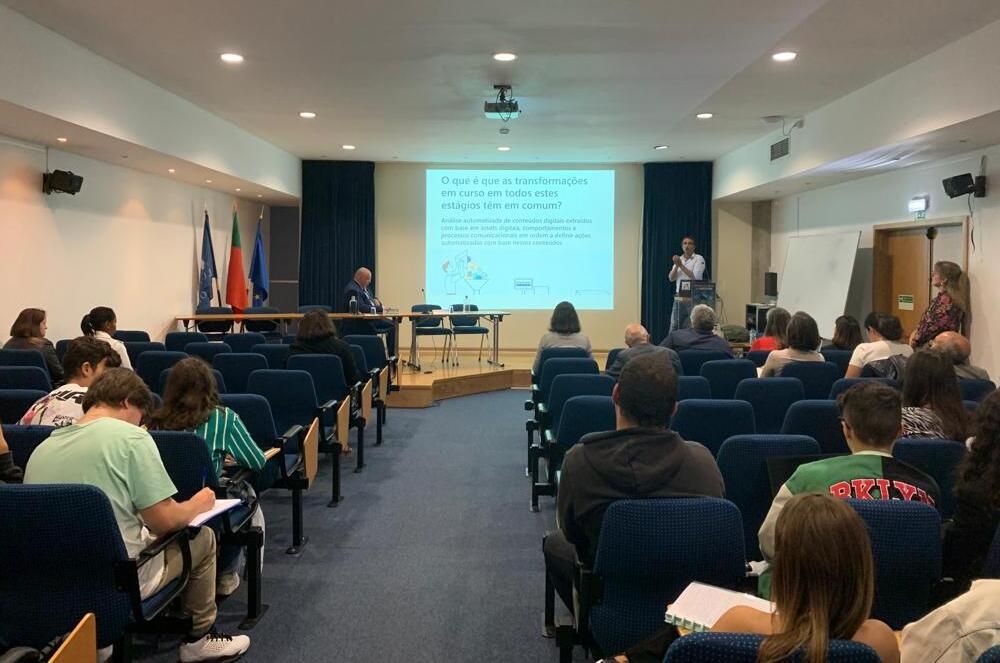ObsMel's inaugural conference debates the media in Lusophony

"Thinking about the Media in Lusophony" was the starting point of the inaugural conference of the Observatory of the Media in Lusophony (ObsMeL), on September 28th. The new structure of CICANT aims to be a forum for reflection on the Portuguese language media, both from the member states of the CPLP and those existing in other countries. The new Observatory has as its general coordinator researcher José Paulo Oliveira and the scientific coordination under the responsibility of researchers Carla Rodrigues Cardoso and Sónia Lamy.
ObsMeL's inaugural conference focused on two main issues. In the morning, the role of the Portuguese language in the media got analyzed. The afternoon was devoted to thinking about "The end of the TV journalism hegemony". Portuguese language journalists and trainers discussed the training of journalists in Lusophony and the orthographic agreement in Portugal. Paulo Nogueira, a journalist from the Portuguese news agency Lusa and trainer at Cenjor ( Centro Protocolar de Formação Profissional para Jornalistas) underlined the importance of teaching journalism while respecting the " nuances of the language". The first panel of the morning also included the presentation of the project Language Consulting for Journalists, an initiative of the Camões Institute, which aims at strengthening the skills of journalists from East Timor.
The second panel focused on the resistance to the new orthographic agreement that persists in the editorial staff of some Portuguese newspapers. Nuno Pacheco, chief editor of Público newspaper, and Leonardo Ralha, executive director of the weekly newspaper NOVO, argued for the need to respect the Portuguese language as it was written before the new agreement. The Público journalist claims that the changes have done nothing more than "mutilate" and remove meaning. And both have criticized the way the agreement was put into practice in Portugal. Nuno Pacheco also argued that countries should accept the diversity of the language instead of trying to cancel it.
Between creativity and the power of social networks
Manuel José Damásio, Director of the Department of Cinema and Media Arts of Lusófona University, opened the conference afternoon with a reflection on "Television and Society", in a connection where "the audience is increasingly more fragmented". The scholar pointed out creativity as the last stronghold of hope for journalism and the career of journalists in the age of automation.
In the closing panel, Christiana Alves Martins, a journalist from Expresso, and Caroline Ribeiro, from TV Cultura, stated that in Brazil television is still the most privileged media. But both agreed that social networks now strongly impact political communication. In the case of the Brazilian elections, the two journalists recognize that social networks are playing a key role in the dissemination of information - both true and false.
- published 09 October 2022
- modified 10 October 2022
